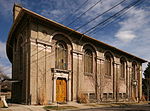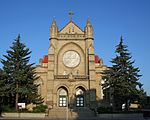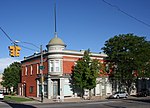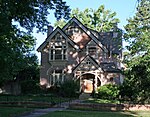Tilden School for Teaching Health
1916 establishments in Colorado1931 disestablishments in the United StatesDenver landmarksEducation in DenverHistoric districts on the National Register of Historic Places in Colorado ... and 1 more
National Register of Historic Places in Denver
The Tilden School for Teaching Health operated from 1916 to 1931 as a private residential teaching institution and sanitarium that offered patients an alternative to the standard medical practices of the day. Located in Denver, Colorado, the school was established to teach and promote the medical theories of its founder, Dr. John Henry Tilden.: 16
Excerpt from the Wikipedia article Tilden School for Teaching Health (License: CC BY-SA 3.0, Authors).Tilden School for Teaching Health
West Highland Park Place, Denver
Geographical coordinates (GPS) Address Nearby Places Show on map
Geographical coordinates (GPS)
| Latitude | Longitude |
|---|---|
| N 39.764166666667 ° | E -105.02805555556 ° |
Address
West Highland Park Place 3125
80211 Denver
Colorado, United States
Open on Google Maps











